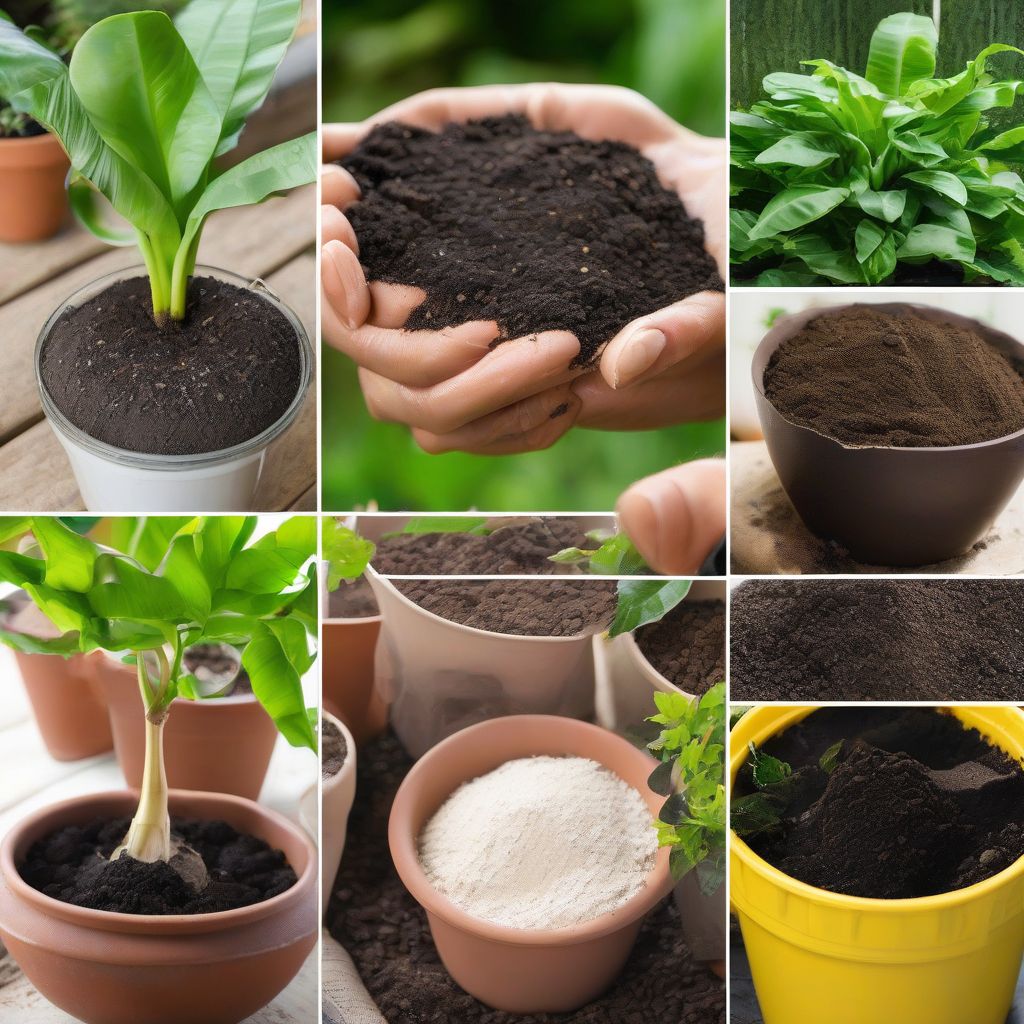As a nutritionist and meal prep coach, I understand the importance of wholesome, natural ingredients – not just for our bodies, but for our gardens too! Just like we thrive on nutrient-rich foods, our plants crave a balanced diet. Using homemade organic fertilizers is like providing a gourmet meal for your garden, boosting its health and vitality while avoiding harmful chemicals. Ready to discover the secrets to a thriving, organic garden? Let’s dive into the best homemade organic fertilizer recipes.
Why Choose Homemade Organic Fertilizers?
Commercial fertilizers often contain synthetic chemicals that can deplete soil health over time and even harm beneficial microorganisms. Homemade organic fertilizers, on the other hand, are gentle on the environment, improve soil structure, and provide a slow-release of nutrients, creating a sustainable ecosystem in your backyard. Plus, they’re often made from kitchen scraps and yard waste, reducing waste and saving you money! “Healthy soil leads to healthy plants, and healthy plants lead to a healthy you,” as my gardening mentor always says.
Top Homemade Organic Fertilizer Recipes
1. Compost Tea: The Liquid Gold for Your Garden
Compost tea is a nutrient-rich liquid that’s easy to make and provides a readily available food source for your plants. It’s teeming with beneficial microbes that improve soil health and boost plant immunity.
Ingredients:
- Finished compost
- Water
- Molasses (optional, to feed the microbes)
Instructions:
- Fill a bucket with water and add compost (a ratio of 1:5 compost to water is a good starting point).
- Add a tablespoon of molasses per gallon of water (optional).
- Aerate the mixture using an aquarium pump or by stirring regularly for several days.
- Once the tea has a dark brown color and earthy aroma (usually after 3-7 days), it’s ready. Dilute with water (1:10 ratio) before applying to your plants.
2. Banana Peel Fertilizer: Potassium Powerhouse
Banana peels are rich in potassium, a vital nutrient for flowering and fruiting plants. This simple fertilizer is a great way to recycle kitchen waste.
Ingredients:
- Banana peels
Instructions:
- Dry the banana peels in the sun or oven.
- Once dry, crush or grind the peels into a powder.
- Sprinkle the powder around the base of your plants or mix it into the soil.
3. Eggshell Fertilizer: Calcium Boost for Strong Plants
Eggshells are a fantastic source of calcium, which strengthens cell walls and promotes healthy plant growth.
Ingredients:
- Eggshells
Instructions:
- Rinse and dry eggshells.
- Crush the shells into small pieces or grind them into a powder.
- Add the crushed eggshells directly to your soil or sprinkle them around your plants.
4. Grass Clippings: Nitrogen-Rich Green Fertilizer
Grass clippings are an excellent source of nitrogen, an essential nutrient for leafy green growth. This is a quick and easy fertilizer perfect for lawns and vegetable gardens.
Ingredients:
- Fresh grass clippings
Instructions:
- Leave a thin layer of grass clippings on your lawn after mowing (grasscycling).
- Alternatively, add fresh grass clippings to your compost pile or use them as mulch around your plants.
5. Coffee Grounds: Acid-Loving Plant Booster
Coffee grounds are slightly acidic and add nitrogen and other nutrients to the soil. They are especially beneficial for acid-loving plants like blueberries, azaleas, and roses.
Ingredients:
- Used coffee grounds
Instructions:
- Sprinkle used coffee grounds directly around the base of acid-loving plants.
- Alternatively, add coffee grounds to your compost pile.
 Homemade Organic Fertilizer Recipes
Homemade Organic Fertilizer Recipes
Tips for Using Homemade Organic Fertilizers
- Start slow: Introduce new fertilizers gradually to avoid overwhelming your plants.
- Observe your plants: Pay attention to how your plants respond to different fertilizers and adjust accordingly.
- Test your soil: A soil test can help you determine your soil’s nutrient levels and guide your fertilizer choices.
- Rotate your fertilizers: Using a variety of homemade fertilizers ensures a balanced nutrient supply.
- Consider companion planting: Some plants naturally benefit each other, reducing the need for fertilizers.
Conclusion: Growing a Healthy Garden, Naturally
Creating your own organic fertilizers is a rewarding experience. It’s a simple yet powerful way to nurture your garden, enhance plant health, and contribute to a healthier environment. Remember, like our bodies, our gardens thrive on a balanced and natural diet. By choosing homemade organic fertilizers, you’re not only feeding your plants but also nourishing the earth.
So, roll up your sleeves, gather your kitchen scraps, and start brewing some garden magic! Do you have a favorite homemade fertilizer recipe? Share your tips and experiences in the comments below. Let’s grow together!



